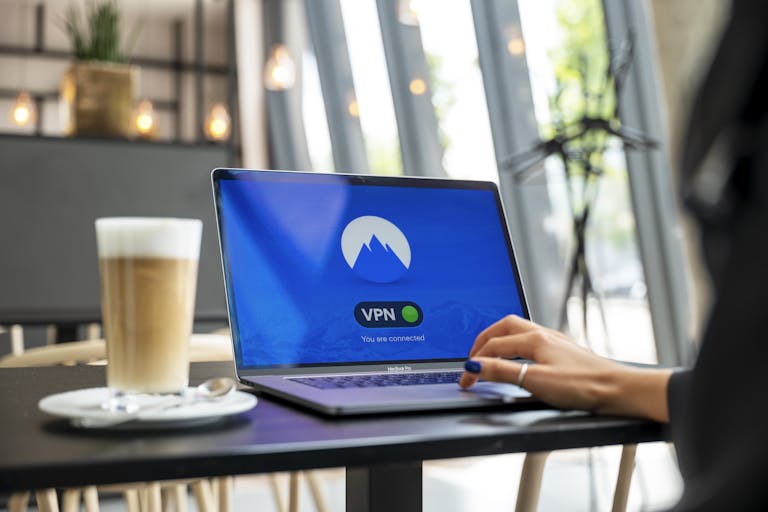Remote Job Scams: How to Spot and Avoid Them
The surge in remote work has opened up global opportunities — but it has also created fertile ground for scammers. Fake job listings, phishing emails, and too-good-to-be-true offers prey on job seekers eager to land flexible work.
This guide will help you spot the red flags, protect your information, and find trusted remote jobs safely.
Summary
Remote job scams are on the rise, with fraudsters exploiting eager job seekers. Watch out for red flags like upfront fees, vague job descriptions, and unrealistic salaries. Protect yourself by using trusted platforms like FlexJobs, securing your browsing with NordVPN, and keeping your devices protected with Avast. Always verify employers and avoid offers that seem too good to be true.
Why Remote Job Scams Are on the Rise
Remote jobs attract massive applicant pools. Scammers exploit this by:
- Creating fake listings on job boards.
- Posing as recruiters via email or LinkedIn.
- Offering high pay for little work.
- Tricking applicants into paying fees or sharing personal details.
According to the Federal Trade Commission, employment scams were one of the fastest-growing forms of fraud in recent years.
Top Red Flags of a Remote Job Scam
Here’s what to watch out for:
- Upfront payment requests
- Legitimate employers never ask you to pay for equipment, training, or access.
- No company presence online
- Search the company’s name + “scam” or “reviews.” If nothing credible appears, be cautious.
- Vague job descriptions
- Scammers often copy-paste generic roles with promises of “easy work” and “quick pay.”
- Unprofessional communication
- Poor grammar, personal email addresses, or rushed hiring processes are warning signs.
- Too-good-to-be-true salaries
- If an entry-level admin job offers $150,000/year, it’s a scam.
How to Protect Yourself When Job Hunting
1. Stick to Trusted Sources
Platforms like FlexJobs hand-screen job postings to ensure they’re legitimate. This removes much of the risk of stumbling across fake opportunities.
2. Secure Your Online Activity
Scammers often hide behind phishing links and fake websites. Using NordVPN helps shield your browsing activity and keeps you safe when clicking links or applying on less familiar sites.
3. Protect Your Devices
Some scam emails come with malicious attachments. Installing Avast gives you an added layer of defense against malware, spyware, and ransomware attacks.
Scam-Proof Checklist
Before applying, ask yourself:
- Does the job come from a verified company?
- Can I find the company’s employees on LinkedIn?
- Is the pay realistic for the role?
- Was I asked to pay for anything upfront?
- Did the recruiter use an official company email address?
If any of these raise doubts, pause and verify before proceeding.
What to Do If You’ve Been Targeted
- Stop communicating immediately with the scammer.
- Do not send money or share further details.
- Report the scam to the FTC or your local consumer protection agency.
- Change your passwords if you clicked suspicious links.
- Run a full security scan with Avast or your preferred antivirus software.
Example of a Common Scam
Imagine receiving an email:
“Congratulations! You’ve been selected for a remote data-entry job paying $80/hour. We’ll mail you a check to purchase equipment. Please deposit it and wire funds back to our vendor.”
This is a classic scam. The check will bounce, leaving you liable for the funds you wired.
🚀 FlexJobs Subscription
Curated remote job board with premium listings.
30% off for RWC readers – $29.95.
Get This Deal
🚀 Avast Premium Security
Security suite to keep your remote work devices protected.
Save up to 40% today – $39.99.
Get This Deal
🚀 NordVPN Subscription
VPN for secure remote work connections and privacy.
Up to 63% off annual plans – $59.88.
Get This Deal
Safe Alternatives to Find Remote Jobs
Instead of risking scams, try these safe routes:
- FlexJobs: Curated and verified listings.
- Company career pages directly.
- LinkedIn Jobs (filter for remote).
For guidance on real opportunities, see our support articles on:
Final Takeaway
Remote job scams are everywhere, but with vigilance you can avoid them. Always:
- Verify employers.
- Protect your personal info.
- Use trusted platforms and secure tools.
Your action plan:
- Search with FlexJobs for vetted jobs.
- Protect your browsing with NordVPN.
- Keep your devices secure using Avast.
Remote jobs are real and rewarding — just make sure you’re landing the right ones.
Remote Job Scams FAQs
How can I verify if a remote job posting is legitimate?
Research the company’s website, confirm recruiter emails come from official domains, and cross-check job postings on multiple sources. Using FlexJobs adds an extra layer of trust.
What should I do if I accidentally clicked on a suspicious job link?
Immediately run a security scan with Avast, change your passwords, and monitor your accounts for unusual activity.
Are all high-paying remote jobs scams?
Not always — but be cautious. If the pay is significantly above industry averages for minimal work, it’s likely fraudulent. Cross-check with salary data to confirm.







